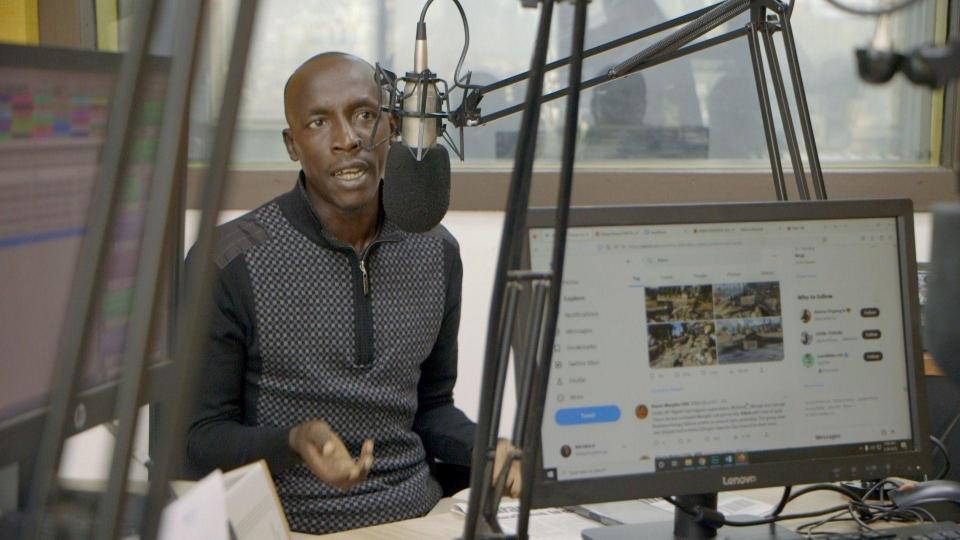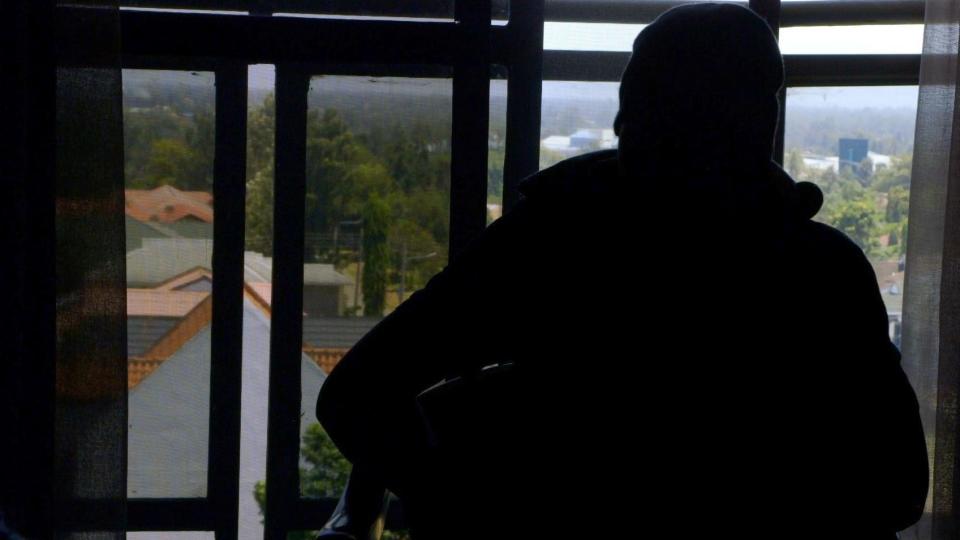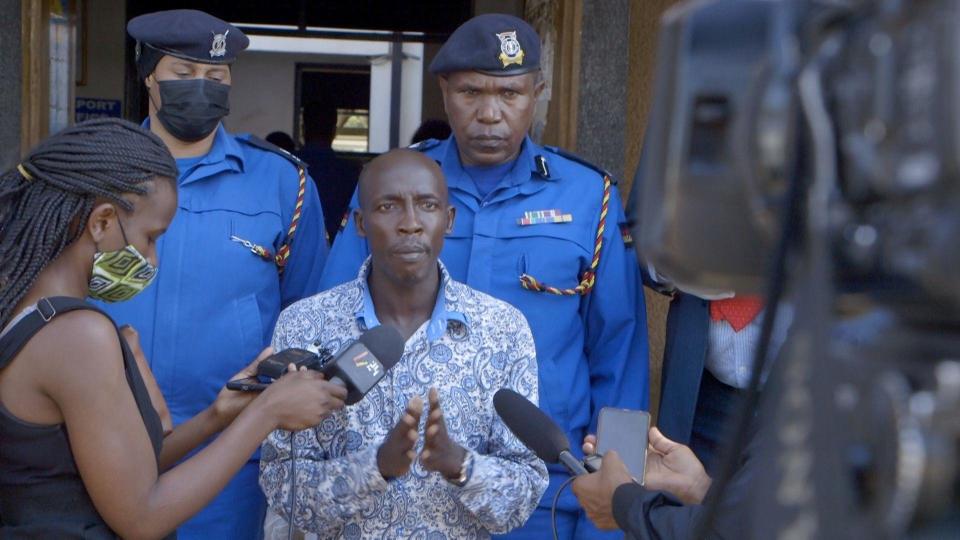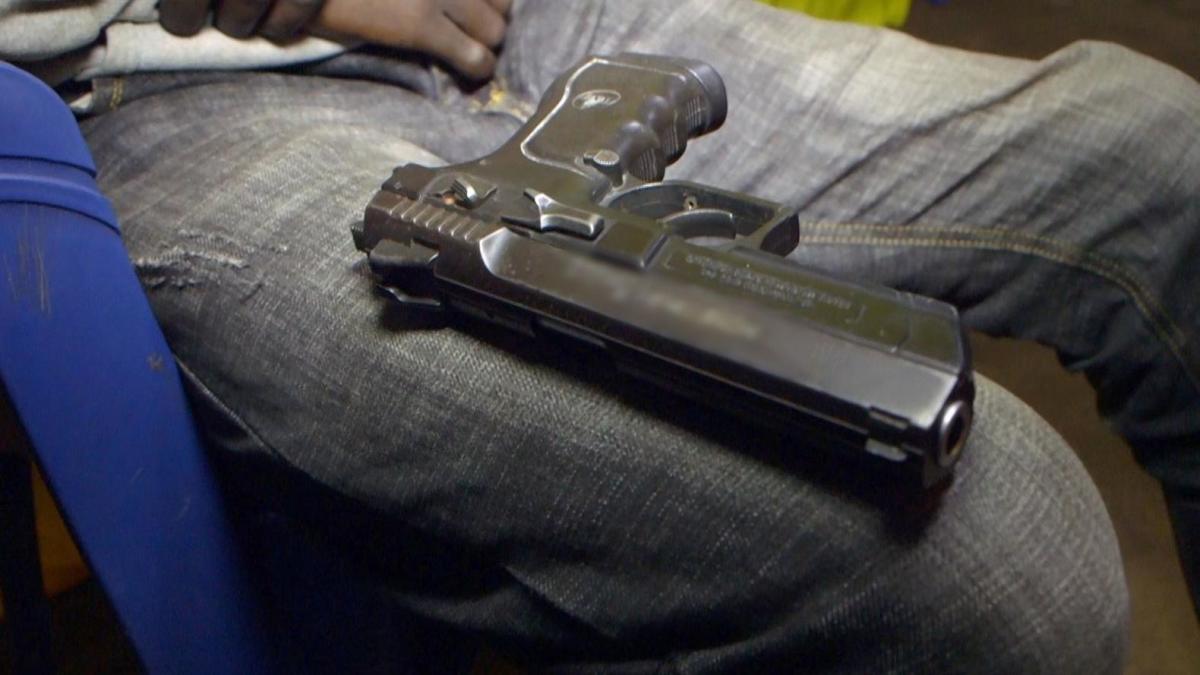As Kenya grapples with rising violent crime, BBC Africa Eye follows a former criminal as he tries to persuade men to hand in their illegal firearms, one gun at a time.
‘The worst thing I ever did was kill. I killed a man,” the young man says after agreeing to be filmed on condition of anonymity.
“I didn’t feel anything because I was high on drugs. It felt like I had killed a fly.”
Samuel, which is not his real name, is in Kisumu on the edge of Lake Victoria in western Kenya, to meet King Kafu, a former convict who now helps people escape crime.
He is visibly nervous. He has an AK47 in a hidden location that he now wants to hand in to the police.
Asked why, he says: “There will come a day when my family will have nothing to eat. They will get hurt eventually.
“If I start messing around and get shot, there will be no one to take care of my family. So I decided, from my heart, to let this thing be given back to me.”
Figures from the Kenya National Bureau of Statistics show that the number of violent robberies increased by almost 20% last year.
Illegal firearms are being smuggled into the country through its porous borders, making Kenyan civilian ownership of guns unmatched in East Africa, according to the Institute of Security Studies.
The latest figures from the Small Arms Survey, which tracks global gun trends, show that there are approximately 750,000 firearms in civilian hands in Kenya. That’s more than the army and police combined.
Kafu acts as an intermediary between people who want to hand in their weapons and the police.

He was 15 when he first got involved in crime. It started with taking people’s bags, but then he moved on to armed robberies.
In 2003 he was sentenced to four years in prison for theft.
Samuel had contacted him via Instagram and asked for help. Kafu spoke to local police in Kisumu and they agreed to receive Samuel’s gun, promising that he would not be investigated in accordance with a proven amnesty program.
But when it was time to meet up with AK47 again, Samuel didn’t show up.
Kafu, now 40, is a presenter at Ghetto Radio, a station popular among young people in the slums of the capital Nairobi, and uses his platform to speak out against gun violence.
“After my release, I discovered that many of my friends who were involved in crime had met tragic ends, and most of them died as a result of their criminal lifestyle,” he says.
This was the reason he turned his life around.
“No one is born a thief. But even if the youth are out of work, we tell them that crime is not good. People should return their illegal weapons to the government,” he said.
For the past two decades, the Kenyan government has used amnesty as a way to control gun crime, promising immunity to those who surrender their weapons.
Thousands of weapons have been surrendered to the authorities. But this is only a small part of the illegal firearms in circulation.


One criminal told BBC Africa Eye that obtaining a gun in Kenya was easy. He said he could buy one for 40,000 Kenyan shillings ($300; £240).
Kafu says people willing to hand over their illegal firearms to authorities fear they could become targets themselves.
Police are accused of being involved in extrajudicial killings. According to the Kenyan charity Missing Voices, more than 800 people have died at the hands of police officers in the past five years. The majority of them were poor young men.
In Nairobi, BBC Africa Eye joins Kafu to meet another man, whom we call John, who is willing to give up his gun.
‘I’m willing to give it back. You’re going to kill someone. You spend the money you get for it within three months, but you have shed someone’s blood. You hurt someone and are left with the guilt. That life is a problem.”
John’s biggest fear about going to the police was that something would happen to him.
He describes what happened to a friend who confided in a community elder that he wanted to surrender two guns. He was arrested by the police and found in a morgue a week later.
“The problem is trusting who to tell and how to hand it in,” he says.
There are widespread allegations that Kenyan police hire and sell firearms and ammunition to criminals. BBC Africa Eye referred this claim to the police, but they did not respond.


Kafu called the local police chief to reassure the man about his safety and a few days later they went to the police station together with the gun.
The officer checked the serial number on the gun and it had a KP mark, which is short for Kenya Police.
At a police press conference announcing the return of the weapon, Kafu made a public statement to ensure police reiterated their commitment to protect these men.
“I want the government to be clear with the youth. Will they disappear or will they be supported if they bring these back? I ask the government to cooperate. These young people want to see some love shown.”
This alone won’t stop violent gun crime in Kenya, but Kafu says it’s a start. Criminals trust him, he says, and hope he can encourage more people to turn in their guns without fear of retaliation.
“We try to fight for these young people,” says Kafu.
More BBC Africa Eye stories:


Go to BBCAfrica.com for more news from the African continent.
follow us on twitter @BBCAfricaon Facebook at BBC Africa or on Instagram at BBCAfrica







